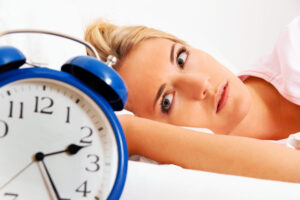 If you suffer from sleep apnea, a good night’s rest can be difficult to achieve. Frequent breathing disruptions interrupt your sleep cycle, which can leave you feeling exhausted the next day. To make matters worse, insomnia and sleep apnea go hand in hand. According to a 2021 study, up to 60% of sleep apnea sufferers also experience insomnia. Sleeping pills are often prescribed to treat insomnia, but are they safe if you have sleep apnea? Here’s what you need to know to doze off quickly.
If you suffer from sleep apnea, a good night’s rest can be difficult to achieve. Frequent breathing disruptions interrupt your sleep cycle, which can leave you feeling exhausted the next day. To make matters worse, insomnia and sleep apnea go hand in hand. According to a 2021 study, up to 60% of sleep apnea sufferers also experience insomnia. Sleeping pills are often prescribed to treat insomnia, but are they safe if you have sleep apnea? Here’s what you need to know to doze off quickly.
What Causes Sleep Apnea?
Obstructive sleep apnea is the most prevalent form of the breathing disorder. Several pauses in breathing occur from an obstruction in the airway created by the soft tissues in the back of the mouth or throat collapsing. Every breathing disruption deprives the body of oxygen and affects your sleep quality negatively. You can be at risk of potentially life-threatening complications with no treatment, including heart disease and sleep deprivation.
Insomnia and Sleep Apnea
Sleep apnea can trigger insomnia for various reasons. For example, the brain may inhibit your ability to fall asleep to avoid experiencing pauses in breathing. Anxiety about breathing disruptions may also cause you to toss and turn at night.
Sleeping Pills and Sleep Apnea
Sleeping pills are a go-to treatment for insomnia, but they aren’t always recommended for patients with sleep apnea. Some sleep aids can worsen sleep apnea events because they may cause the body to relax and suppress breathing. Benzodiazepines can be especially risky.
Manage Your Sleep Apnea
Treating your sleep apnea can help you sleep peacefully while improving your overall wellness. Your sleep specialist will create a personalized treatment plan, which may include:
- CPAP Machine: A CPAP machine is the most traditional method of treating sleep apnea. Gentle air pressure is delivered through masking worn over the mouth or nose to prevent breathing disturbances.
- Oral Appliance: An oral appliance is a comfortable and convenient alternative to a CPAP; however, it can also be used along with the machine. It trains the jaw to rest in a more natural position to keep the airway open. It’s effective for treating mild-to-moderate obstructive sleep apnea.
It’s important to speak with your physician before using any sleep aids, including those available over-the-counter. If you’re struggling to fall asleep, even with sleep apnea therapy, they’ll determine the safest solution to help you sleep like a baby.
Dr. Reeder strives to deliver exceptional care to patients experiencing sleep difficulties, like sleep apnea. She achieved her dental degree at the University of Oklahoma Health Science Center and has continued her education in sleep-disordered breathing. She is a member of several professional organizations, including the American Dental Association. Request an appointment through her website or call her office at (918) 417-1926.
